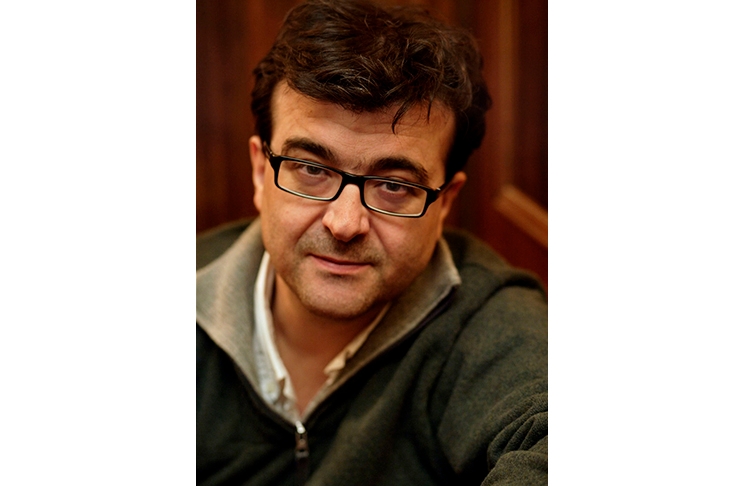Who is a hero? Javier Cercas, in his 2001 novel Soldiers of Salamis, asked the question, searching for an anonymous hero, a soldier in the Spanish civil war. The book won major prizes and transformed Cercas from a respected Spanish novelist into an international literary figure.
Eighteen years on, he returns to the war with his new novel, Lord of All the Dead. This time his theme is the nature of heroism itself, interwoven with a more personal quest: a reluctant picking over the bones of his great-uncle Manuel Mena, a hero of the Franco era who became an embarrassment to his family as the wheel of history turned. It’s a subversive and disenchanted view of war in general and the Spanish conflict in particular, in a fine translation by Anne McLean.
As in his earlier novel, Cercas is a slippery narrator, shifting in and out of the story, sometimes taking an overview with a documentary, almost forensic tone, at other times assuming the first person role of ‘Javier Cercas’ researching his family’s past — then pulling the rug from this conceit with post-modernist glee:
If I were a literato and this were a piece of fiction I could fantasise about what happened, I would be authorised to do so. If I were a literato I could, for example, imagine Manuel Mena waking his men… I could imagine his fear and I could imagine him fearless…
And then he hits us with two shocking pages of the imagined battle: ‘The blazing red of the blood on the white snow; from the sobs of the mortally wounded to the deafening silence of the corpses…’ Enjoying both the freedom of fiction and the denial of its use, Cercas cheekily adds:
All this I could imagine. But I shall not imagine it or at least, I’ll pretend not to imagine it, because this is not fiction and I am no literato, so I must confine myself to the safety of facts.
Mena was a dashing soldier, remembered not only for his bravery in battle, but what the Greeks called kalos thanatos: a beautiful death. Think Achilles. But somewhere between the idealised hero and the disgraced fascist lies a man. Who was Manuel Mena? How did he live and how did he die?
For years Cercas resisted the idea of writing his great-uncle’s story. When he finally embarked on it, he mapped out the life in every detail: village childhood, friends, an old peasant who knew him at school. He walked where Mena had walked, explored battlefields and, astonishingly, discovered the room where he died.
The family supported Franco. Much of the country did, from conviction or from a desire to stay alive. Mena was a believer, an idealistic teenage Falangist; he fought on Franco’s side in the shock unit of the Ifni Riflemen as a provisional second lieutenant (aka ‘corpse in waiting’). Only 19 when he was killed, Mena seemed a lot older — ‘aged by war’, in Cercas’s telling phrase.
In search of the dead man, Cercas resurrects the past, drawing on records and personal testimony, at times guilty of information overload: details of battles won and lost weigh down some pages. But when it focuses on people, the book takes flight. It can be moving, unexpectedly funny, racy, demotic or deadpan. By the end there’s little that remains unknown about Mena, and there’s a sad irony to the achievement of heroic status: the family saw him as Achilles, the hero who gloriously died young. Cercas reminds us that when Odysseus, the wily survivor, visits the Underworld in the Odyssey, Achilles confesses he’d rather be a surviving penniless serf than lord of all the dead. So much for kalos thanatos.






Comments